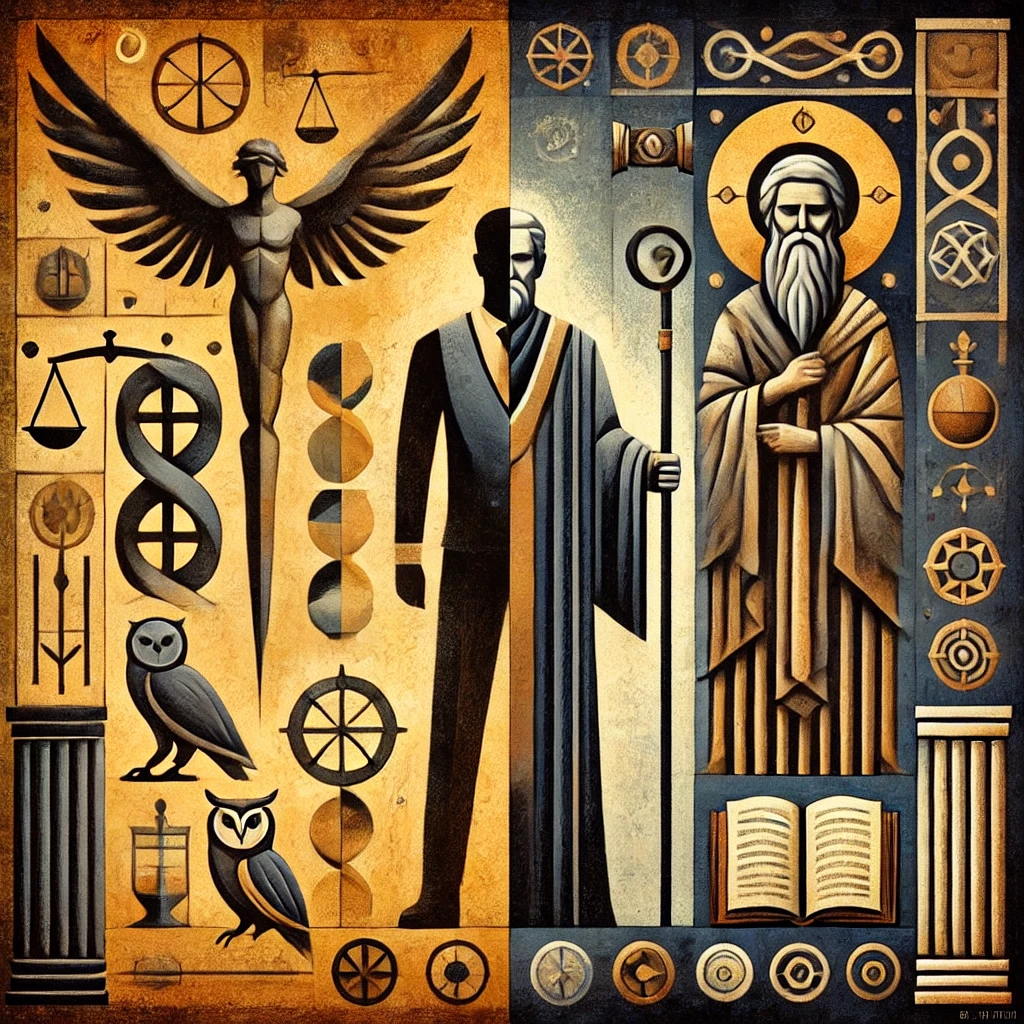Defining Authority vs. Wisdom
In understanding the concepts of authority and wisdom, it is essential to recognize their distinct characteristics and the roles they play in our lives. Authority is primarily defined by the power, control, and recognition that an individual possesses within a specific domain. It is often conferred through formal positions, such as leadership roles in organizations or recognized expertise in particular fields of study. Authority entails the ability to make decisions, enforce rules, and guide others based on a perceived level of superiority. This power can significantly impact social dynamics, especially in workplace settings, where an authoritative figure can influence group behavior and outcomes.
In contrast, wisdom transcends the mere possession of authority. It is characterized by a depth of experience, knowledge, and a well-honed capacity for sound judgment. Wisdom often comes from life experiences, encompassing not only what one knows but also how one applies that knowledge in real-world scenarios. A wise individual is capable of seeing beyond immediate circumstances, considering the broader consequences of actions and decisions. In personal relationships, wisdom fosters empathy, understanding, and effective communication, enabling individuals to navigate complex social interactions thoughtfully.
The differences between authority and wisdom become evident in various aspects of life, including social structures and personal encounters. While authority can often demand compliance, wisdom tends to cultivate respect and trust. This dynamic becomes particularly pronounced in leadership contexts, where effective leaders harness their authority while also exemplifying wisdom to inspire and guide their teams. In essence, while authority commands presence, wisdom connects with people on a more profound level, facilitating growth and understanding.
The Role of Authority in Society
Authority plays a crucial role in the organization of society, influencing norms, policies, and hierarchies. It is established through various channels, including government institutions, educational systems, and professional organizations. These structures provide frameworks within which individuals and groups operate, establishing rules that guide behavior and decision-making processes. When authority figures, such as lawmakers or educators, effectively communicate their vision and objectives, society tends to function more smoothly, as individuals align their actions with the established guidelines.
One significant advantage of authority is its ability to instigate decisive action. Authority figures are often tasked with making critical decisions, particularly in times of crisis. Their expertise and experience play a vital role in navigating challenges, fostering stability in communities and organizations. For example, in public health emergencies, health authorities issue directives that aim to protect populations’ well-being, illustrating how reliance on authoritative guidance can lead to positive outcomes.
However, despite its advantages, the dependence on authority can also present substantial disadvantages. For instance, an overreliance on authority figures can stifle creativity and critical thinking among individuals. This can result in conformity, where unique perspectives or innovative solutions are overlooked in favor of adhering to established norms. Furthermore, when authority is misused or abused, the consequences can be detrimental. Instances of corruption or manipulation can erode trust within communities, leading to disillusionment and unrest.
Proper accountability and responsibility are essential aspects of authority. Individuals in positions of power must recognize the implications of their decisions and the impact they have on those they govern. A transparent and responsible authority commendably influences decision-making processes while fostering an environment conducive to personal growth and collective well-being. Hence, striking a balance between the benefits and challenges posed by authority is vital for a thriving society.

The Importance of Wisdom for Personal Development
Wisdom plays a crucial role in personal development, acting as a guiding force that influences an individual’s choices and actions. Unlike authority, which often derives from rank or position, wisdom is cultivated through experiences, reflection, and the synthesis of knowledge. It enables individuals to navigate the complexities of life with greater emotional intelligence and empathy, fostering deeper connections with themselves and others. As such, wisdom becomes an indispensable asset in making informed decisions that resonate with one’s core values and life goals.
The process of cultivating wisdom is inherently personal and deeply reflective. Life experiences, both positive and negative, serve as rich sources of insight. Engaging with diverse perspectives enhances one’s understanding of various situations, while reflecting on past decisions allows individuals to learn valuable lessons. This reflective practice encourages a mindset of continuous growth, where one is constantly assessing and recalibrating their values and beliefs based on new insights. Furthermore, actively seeking wisdom from mentors, books, or communities inspires broader thinking and a more nuanced approach to problem-solving.
Integrating wisdom into daily life fosters resilience and clarity in times of uncertainty. Individuals who prioritize wisdom often exhibit heightened emotional intelligence, enabling them to empathize with others and navigate interpersonal relationships more effectively. This emotional acuity enhances decision-making, allowing for choices that consider not only personal desires but also the impact on others and the broader community. In this context, wisdom emerges as a foundational element of personal growth, paving the way for a fulfilling, purpose-driven life. Ultimately, by recognizing the importance of wisdom, individuals can actively engage in practices that nurture this vital quality, thereby enhancing both their personal and interpersonal experiences.
Balancing Authority and Wisdom for Effective Leadership
Effective leadership hinges on the delicate balance between authority and wisdom. Authority represents the power to make decisions and enforce rules, while wisdom encompasses the insight and understanding necessary to guide those decisions judiciously. Leaders who rely solely on their authority may command respect, but it is wisdom that fosters trust and inspires followers. An ideal leader embodies both traits, utilizing authority to steer their team toward clarity and purpose, while employing wisdom to ensure that decisions reflect the collective needs and aspirations of the group.
One crucial strategy for blending authority with wisdom is active listening. By encouraging open dialogue within teams, leaders can gain valuable insights into the perspectives of their members. This inclusiveness empowers employees, making them feel valued and heard, ultimately enhancing team morale and cohesion. A leader who listens actively not only strengthens their authority but also demonstrates wisdom by acknowledging and incorporating diverse viewpoints into decision-making processes.
Furthermore, leaders should cultivate emotional intelligence. Recognizing the emotions and motivations of team members allows leaders to respond appropriately, fostering a supportive environment. This approach encourages collaboration and enhances the overall efficacy of the team, as members are more likely to contribute meaningfully when they feel understood and respected. By blending their authoritative role with compassionate understanding, leaders can create a culture where innovation and problem-solving thrive.
Additionally, continuous learning plays a pivotal role in achieving a balance between authority and wisdom. Leaders should engage in ongoing education, both formally and informally, to stay informed about industry trends and leadership best practices. This dedication to self-improvement not only reinforces their authority but also exemplifies wisdom, showcasing a commitment to growth that can inspire others to pursue their own development.
Ultimately, the equation for effective leadership is straightforward: combining authority with wisdom leads to a more inclusive and thoughtful environment, enabling leaders to guide their teams successfully toward shared goals.





Leave a Reply